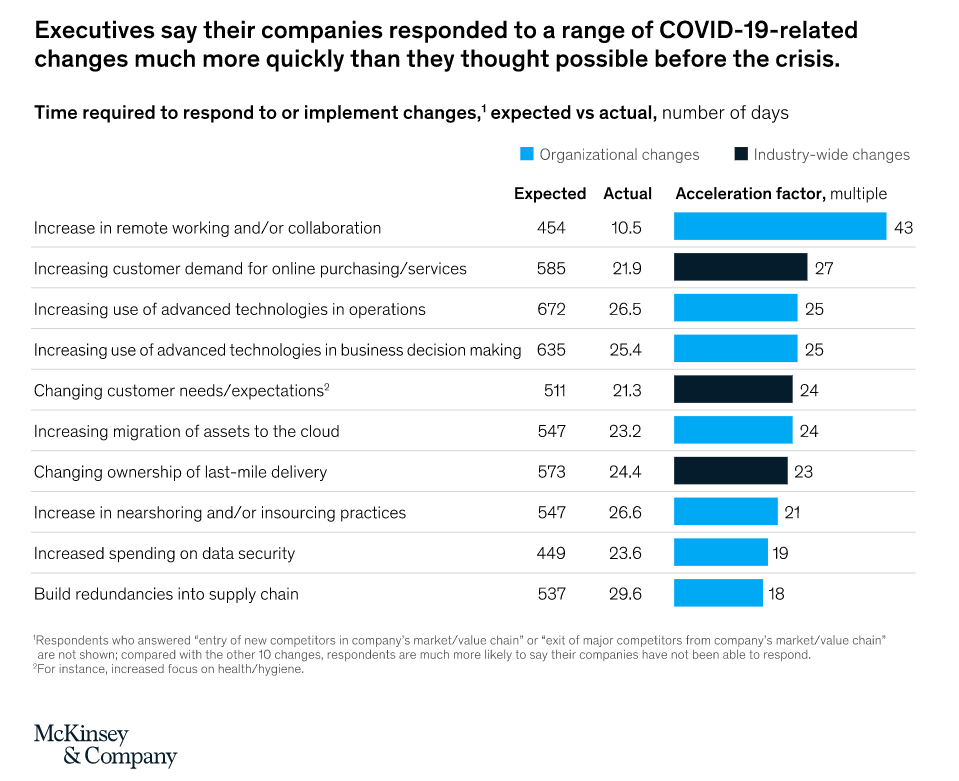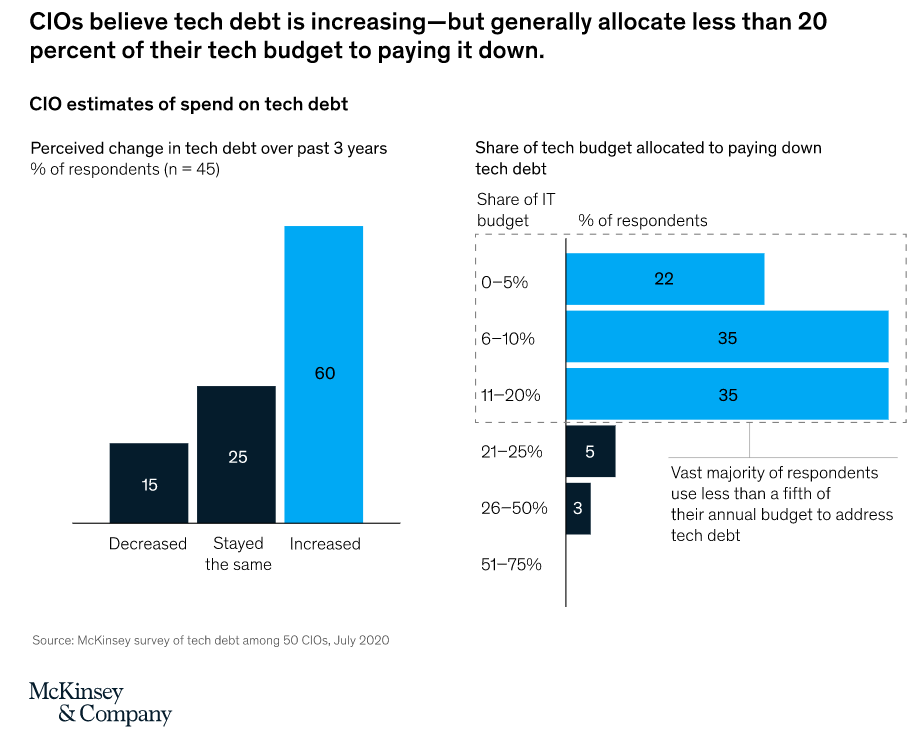Safe to say, we are surrounded by technology left, right and centre. And while it is not necessary or even possible that we understand all of it, it comes as no surprise that even the most non technical profiles and people associated with it have to interact with technology on a daily basis to get their work done.
Having said that, an executive role in particular would require a certain amount of fluency in technology, as a person in such a designation needs to be on top of everything - and hence be familiar with the associated systems. Placing it on an inaccessible pedestal, we often forget that all of technology has been formulated by humans, and that it isn't really as incomprehensible to grasp as we normally perceive it to be. Tech is not magic!
Fast forward to today. The pandemic has hit us hard, all our homes have been converted to offices, and being physically present has been replaced by a number of digital tools that ensure communication and teamwork within a company. Looking at this scenario, it can be concluded that digital literacy is not an option anymore - it is a basic necessity.
“We'll get past the pandemic, none of us can predict what the next tail event is, but digital technology is becoming core to both how we think about resilience in business continuity, as well as bringing about that next level of productivity change and efficiencies across industries.”
Satya Nadella
As rightly predicted, an accelerated transformation to being more digital has been seen in recent times to cope up with this new era of remote working and collaborations.

But these changes cannot happen seamlessly in case of a digitally challenged management. As the people at the top of the ladder must be the jack of some, if not all trades to bring the organisation closer even during these distressing times - and one of those trades has to be digital knowledge.
Let’s skim through some basics in terms of technology that all executives must know.
Ensuring digital competency
- Executives have a plethora of responsibilities, many of which cannot be fulfilled if one is not sufficiently skilled in the basics of digital technology. Hence, first and foremost, a person of such stature should be well versed in basic computer knowledge including a general understanding of web design and Search Engine Optimization.
- To communicate their goals and visions properly to each team member - including the technical team, leaders must have knowledge of some technical terms that are more widely used so that they understand everybody's agendas equally well and are in a position to monitor the entire organisation's progress.
- Apart from this, a digital culture needs to be cultivated within the organisation by the executives where the existing employees are trained in digital knowledge so that they can utilise the tools at their disposal even while working remotely. More on how businesses can reimagine themselves digitally in the pandemic era here.
- In this digital age, one who converts concepts into cash the quickest, wins. So the power of digital channels and being well versed in technical skills should not be ignored because this is the pathway to reach your customers and it must be used wisely.
- In order to stay updated on the tech trends and also to be able to incorporate all of those, executives should prioritise a well designed codebase so that the tech team can navigate through and add features in the code easily.
- Make sure to clear off any technical debt.
Knowledge of important vendors
Being at the top of the organisational hierarchy, it is imperative to have knowledge about different vendors offering the kinds of technology you need, and subsequently, having updated data at your disposal to be able to analyse which option you should be going for. Decisions like these are extremely important as they affect the entire working of the business from the management level to the beginner. B2B (Business to Business) transactions should happen only with your approval, and for you to approve of sometimes, deeper digging and understanding of the technology in question along with your needs at the moment need to be examined.
Incorporating new technologies
Just being familiar with a supposed technology is not enough - executives' knowledge about this should be deep and profound enough to be able to make a selection through a proper business case as and when required. For this, it is important to stay up to date and well versed with current technologies, and also their use case when it comes to different business scenarios needs to be taken into consideration to make the correct choice. Read about the 2021 macro trends in technology and web development trends in 2021 to know more.
Investing in CD and DevOps
Continuous Delivery (CD) helps an organisation to deliver new features and functionalities in a fast and iterative manner as compared to slow and lethargic release cycles. On the other hand, DevOps is a new fostering culture that promotes a close collaboration between those creating the software (developers) and those operating it (operators). When teams work in close cooperation, the overall process becomes much more seamless and faster skimming through all operational hurdles and issues. Thus, investing in CD and DevOps should be one of our top most priority is to improve organisational efficiency.
Data management
A skilled executive should take care to accurately deduce and gather relevant information that is relevant to the organisation’s business ideas. The person should have enough knowledge to analyse different trends, identify potential problems and create future roadmaps in accordance with his or her findings and also relay this information to the rest of the team. Depending on a manager's hierarchy and position in the organisation, they may even be expected to be familiar with certain tools that facilitate data collection and analytics. Learn how better data-driven strategies can help capitalise on consumer behaviour.
Being clear on the concepts
Conceptual clarity could refer to a number of things - from knowing terms that are frequently used (for example, API) to basic application knowledge of the programming languages used by your organization. It also refers to a familiarity with tech lingo that is usually used across the industry - which gradually develops on its own when you're around that kind of content.
One also needs to understand the digital infrastructure of the official systems used in the company, as these are the different layers of foundation that make the final product work. Once you understand the systems, you'll also go on to understand their limitations - and will troubleshoot in a more efficient manner.
Keeping the boundaries open
There are elements in the technical sphere that are never really 'done', just like we never think of marketing acquisition as 'complete' at some point - because it is an iterative process. Technology too, is ever evolving, and hence needs constant monitoring and supervision by the executives so as to stay at the top of the game at all times. Working with softwares means recurring testing, bug fixation and support and maintenance. While it would be great to release or work on softwares that don't need additions or subtractions - the world doesn't work that way, and there will be newer technologies, your competitors will come up with something else, or you will evolve into delivering services that need a more robust digital infrastructure.
Addressing security concerns
As people representing the management, it would be the responsibility of executives to educate the staff on the importance of staying away from unauthorised websites, or opening strange emails and even casually giving out the user ids and passwords to websites. Employees visiting shady websites could invite dangerous viruses and malware into the network which could greatly impact the digital infrastructure.
Knowledge of basic softwares
Softwares like Google Docs or MS Excel are used across verticals and are used by people of several designations. Basic knowledge when it comes to these tools is essential for an executive as much as a test for any regular employee of the organisation. You can't be calling in IT every time there's an analogy to prepare or a report to make!
Keeping up with software updates
Very basic but very important - executives should try not to accumulate a lot of technical debt! Regular software and hardware updates ensure that the systems are working fine and if some components need to be replaced, they are at least still manufactured and available in the market. As a constantly depreciating element, technology will always need some monetary allocation to constantly keep clearing the technical debt. McKinsey notes that although technical debt is a big concern and is on the rise, companies are seen downplaying it and allocating less than enough resources to counter it.

This can lead to some severe repercussions in the future!
Digital Marketing
In this day and age, a bulk load of marketing happens online. And while you might have specialists to help you out with digital marketing campaigns and social media management, it is another skill that one just cannot do without these days. As a person at the managerial level, basics of digital media, networking, Search Engine Optimisation and web analytics are needed for being able to supervise these segments properly and examine what is working for your brand and what isn't.
Project Management
Although project management is a soft skill rather than a hard skill, it is one of the most critical qualities expected from executives. And while the role itself is far from technical, it does require using complex programs and systems to monitor everything efficiently, which can become quite an issue if one hasn't mastered those. Effective delegation of tasks and measuring the success of each product would require a branch of tasks like budget planning, fabrication, project planning, quality assurance, quality control, etc., each requiring a set of tools that one would need to get familiar with. To know more about the right approaches to managing projects, read about the human factor and the role of psychology in project management plus how feature prioritisation can be done the right way.
But is that all?
No, it isn't! While project management might rest right at the boundary of technical and non technical skills, there are a number of other soft dimensions that an executive should be proficient in as well. He or she is also responsible for -
Focusing on continuous learning and having an outsider's perspective to problem solving. One must look beyond their day-to-day responsibilities and observe and learn from what is going on in the respective industry at large.
Well we talked of observing the industry, one must also realise that a problem can have several different approaches, and therefore be on a constant look out for how their competitors are solving their recurring problems.
“We need to look beyond our specific areas of interest and observe how others, who are out of our usual purview, are solving problems. Often one of the quickest routes to an “innovative” solution is ethically appropriating and adapting outside ideas."
- Mike Rucker, Ph.D., Active Wellness
It is important to deduce some reliable and trusted sources that publish relevant data with regard to your industry and rely on that observation to formulate your next product or service or better the existing ones.
And while we have been talking about harnessing the power of digital, use the same technology to network and reach out to your end users and clients. Staying connected ensures that you remain updated on the latest industry trends and have a fair idea at all times about what the market needs are.
This pretty much sums up most of the basic technical and also some essential non technical skills that all the executives needed to be familiar with in order to perform efficiently. As we have been going increasingly digital, it cannot be denied that one's skillset needs to be upskilled in a similar manner to adhere to these times. And while it may not have been as important a year ago when things were pretty normal, having some technical skills has become the prerequisite to effective management today, and things will likely remain the same way in the future.
Subscribe
Related Blogs
Why should you prioritize lean digital in your company?

We are living in an era where the change and innovation rate is just so high. If you want your organization to reach new…
How to measure your open source program’s success?

Along with active participation, it is very important to look after the ROI of open-source projects, programs, and…
Understanding the significance of participating in open-source communities

Do you think contributing to the open source community can be difficult? I don’t think so. Do you have to be employed by a…



